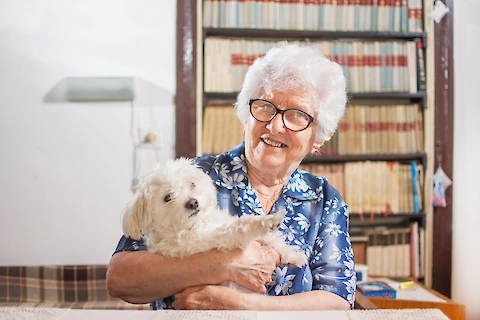
As a pet owner, it can be difficult to keep your furry family members safe. You may not even realize that some of the everyday items in your home can be toxic or poisonous to your pets. That's why Senior Helpers Southern Utah has put together this helpful guide of tips and tricks to help you identify and remove potential poisons from your home and keep your pets safe.
Whether you live in Cedar City, Hurricane, Saint George, Mesquite, Washington, or Vernal, our guide will give you the tools to protect your pet from dangerous household items.
Common Household Dangers for Pets
When it comes to pet safety, it's important to be mindful of the items that your furry family members may be exposed to daily. Here are some common household dangers that you should look out for:
Cleaning Products
Many cleaning products, such as bleach and detergent, can be toxic to pets if ingested. Keep any cleaning products in a secure location and be sure to follow the directions on the label. You should also make sure to get in touch with your pet's veterinarian. They will be able to answer questions regarding unsafe or toxic household cleaning products that could potentially harm your pet.
Plants That Are Toxic For Pets
Many plants can be toxic if ingested by pets. Common examples include daffodils, lilies, and azaleas. Be sure to keep any potentially toxic plants out of reach of your pets and research any new plants before bringing them into your home. If you are in doubt about whether a plant in your home is toxic to your pet, consult your veterinarian. They will be able to give you a list of plants that are unsafe and what plants you should consider removing from your home.
Cabinets That Contain Medication
It's not just cleaning products and plants that can potentially harm pets - most medications can also be dangerous to animals if ingested. Be mindful of where you store medication and keep any cabinets that contain medication locked and out of reach of your pets. Many pets are quite smart and can figure out how to break into cabinets or nudge them open with their paws. Consider adding child-safe locks to your cabinets, so that your pet can't easily get into any cabinet or space that has unsafe products or medications.
Senior Helpers Offers Guidance and Support
With these tips and tricks in mind, you can successfully identify and remove any potential poisons from your home. By taking the time to be mindful of the items in your home, you can keep your furry family members safe. If you're looking for more guidance on senior pet care or need assistance with in-home senior care, contact Senior Helpers today! We look forward to helping you create a safer, healthier home for your pet.